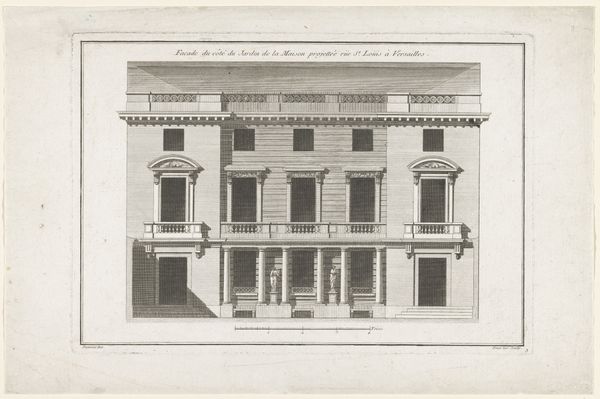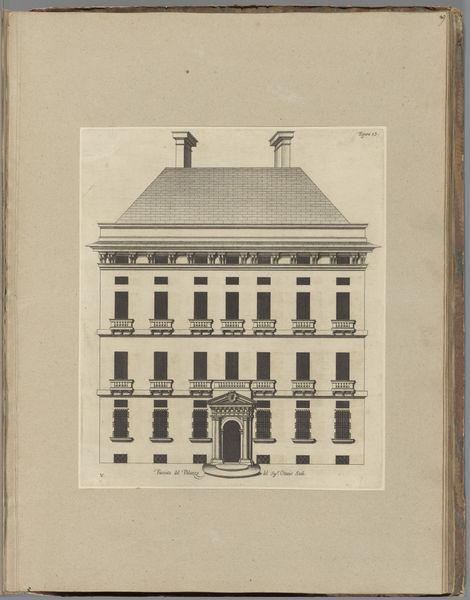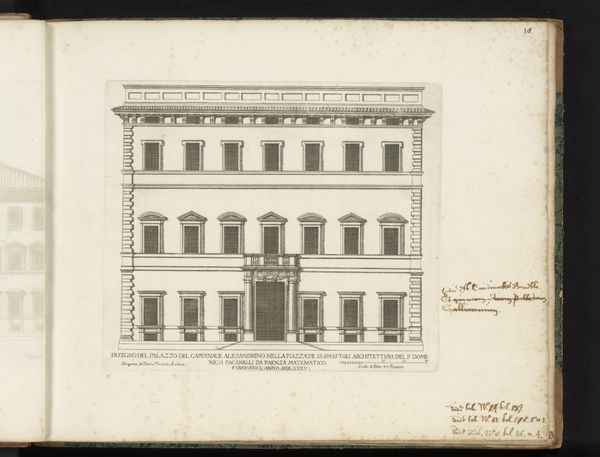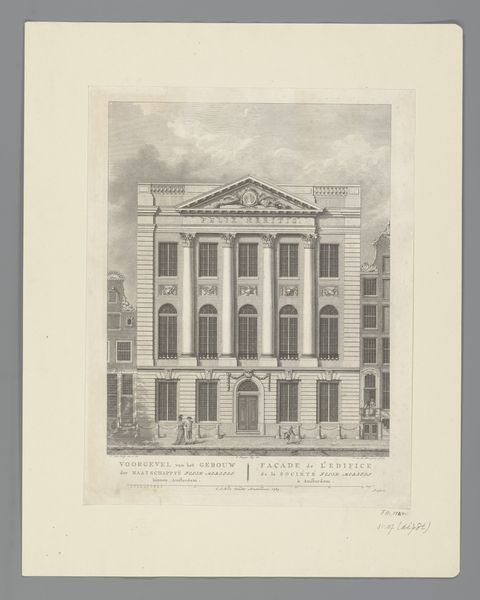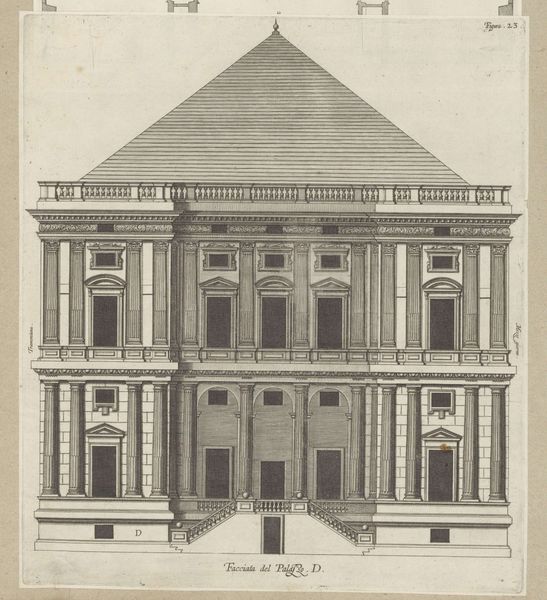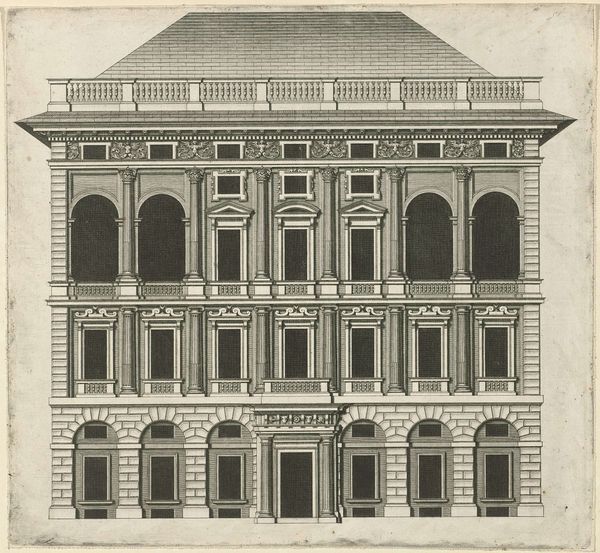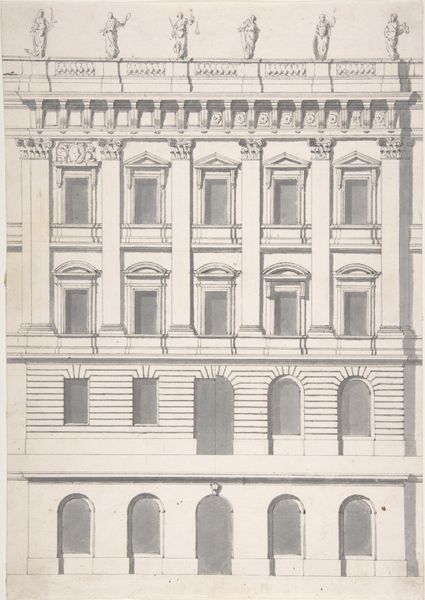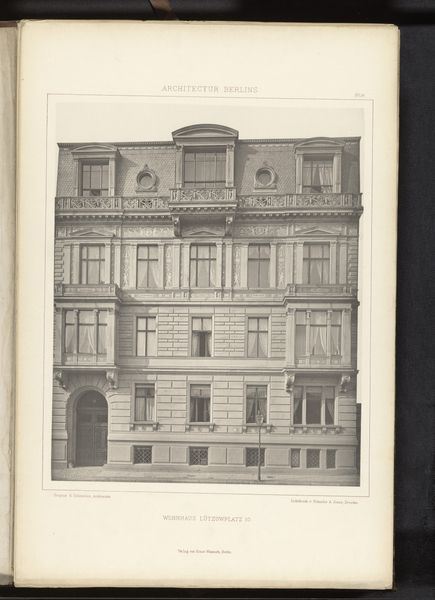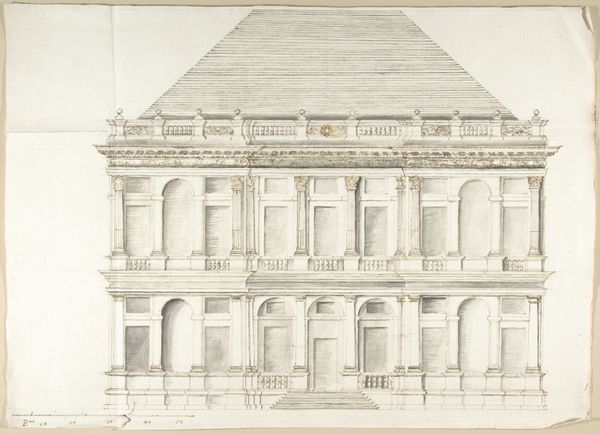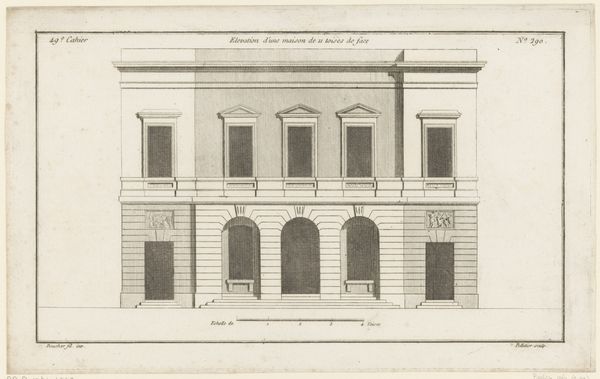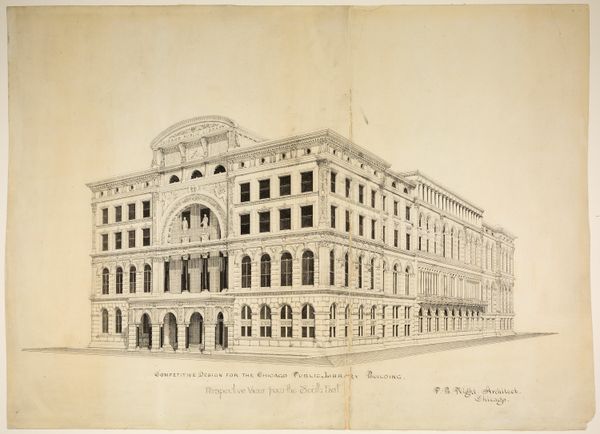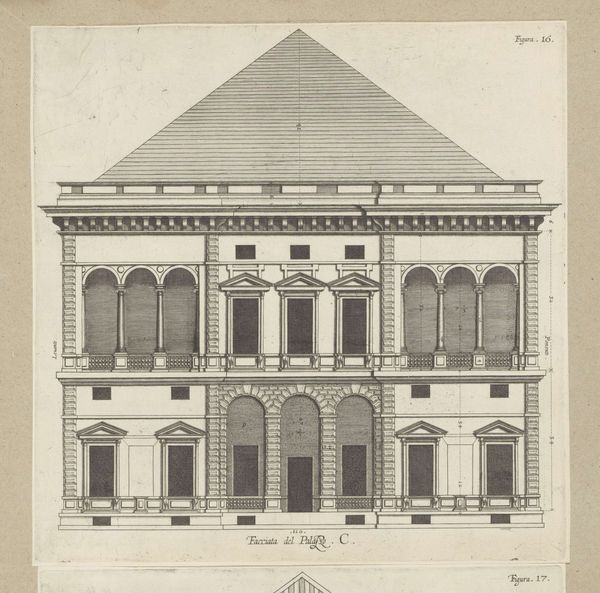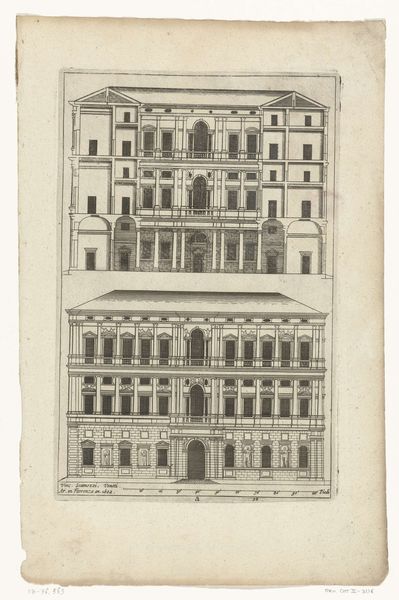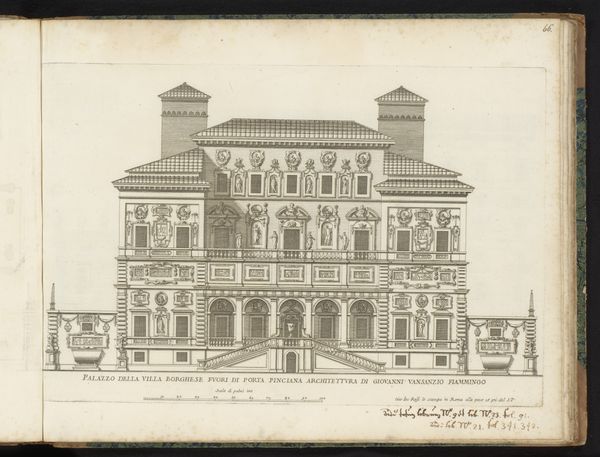
View of a Theater (Bayreuth): Exterior Elevation of the Facade; Central Portal Surmounted by Royal Crown 1696 - 1756
0:00
0:00
drawing, print, etching, architecture
#
drawing
#
baroque
# print
#
etching
#
etching
#
geometric
#
cityscape
#
architecture
Dimensions: 22 11/16 x 21 7/8 in. (57.6 x 55.6 cm)
Copyright: Public Domain
Curator: I find this image so compelling; it's a preparatory drawing, meticulously etched, for "View of a Theater (Bayreuth): Exterior Elevation of the Facade; Central Portal Surmounted by Royal Crown" by Giuseppe Galli Bibiena, dating roughly from 1696 to 1756. Look at the crown centered at the very top of the portal. Editor: My first thought is "order." I'm immediately struck by its rigid symmetry, almost intimidating. It's a calculated display of power. Curator: The Royal Crown isn’t simply decorative; it’s a potent symbol. Crowns represented divine sanction in this era, signifying authority that came directly from God. Consider the way light might play across this etching in real life: the architectural presence in and of itself is monumental. The design elicits psychological effects linked with awe, and perhaps a touch of dread. Editor: Yes, a certain dread of hierarchical power. Architectural choices like the sheer size of the facade, combined with repetitive geometric patterns—the windows mimicking each other in an endless echo—visually reinforce systems of control. And look, below the crown, a balcony perhaps, and then gates barring entry at street level. There are levels of restriction upon restriction. Curator: Bibiena uses geometry—circles, squares, and triangles—to evoke feelings, to conjure ideals about the theatre within as a symbol of enlightenment and power. Notice how the rigid symmetry draws the eye upwards, focusing on that crown. In cultural memory, arches often speak to victory and arches that form entry ways invoke themes of transformation. It's quite brilliant. Editor: Brilliant perhaps, if you're on the side of the monarchy! Think about the other side of the coin, the implications of grand, imposing structures: access is severely limited; public space is denied. This is not architecture for the masses, is it? This etching really underlines how art is never truly separate from its social and political context. Curator: And I think that the piece reminds us how symbolism can often be double-edged. Thank you for shedding light on its other faces. Editor: Thank you, a fascinating window into how stages can become political arenas.
Comments
No comments
Be the first to comment and join the conversation on the ultimate creative platform.
